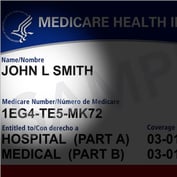What You Need to Know
- The case involves Aliera.
- The proposed class could include about 100,000 people.
- The new ruling involves a dispute over use of arbitration.
A federal judge in Atlanta declined to grant the prayers of an Atlanta-based marketer of health care coverage for affiliated faith-based “health care sharing ministries” that sought the dismissal or compelled arbitration of a putative class action claiming its plans are both illegal and do not provide the coverage participants pay for.
According to the complaint Atlanta-based Aliera Cos., formerly known as Aliera Healthcare Inc., pockets 84 cents for every dollar in premiums it collects, while federal statutes generally limit administrative costs and profits to 15% of premiums.
The proposed class consists of an estimated 100,000 participants who have paid more than $200 million to cover medical bills that Aliera either denied or delayed paying since 2017.
Aliera had argued that its plans are not insurance but are legitimate offerings by health care sharing ministries [HCSM], which are not subject to the Affordable Care Act or other federal regulation, and that they contain mandatory arbitration clauses for any disputes with participants.
Two companies, Unity Healthshare and Trinity Healthshare Inc., are named as the HCSMs affiliated with Aliera, and in a 2020 statement the company said “Aliera is a holding and management company and is neither an insurance company nor a Health Care Sharing Ministry.”
But in an 84-page ruling, District Judge Amy Totenberg of the U.S. District Court for the Northern District of Georgia said the plans are in fact insurance — Aliera’s claims to the commentary notwithstanding — and that Georgia law specifically prohibits mandatory arbitration provisions in insurance contracts.
In addition to requiring mandatory monthly payments — which HCSMs are not allowed to require (and which Aliera denies) — Totenberg said the plans Aliera marketed were restricted to any particular faith or creed, in violation of federal requirements that they “share common ethical or religious beliefs.”
Pointing to marketing materials proclaiming that its program is open to “Christian, Jewish, Muslim, or non-denominational” particpants, Totenberg said said investigations into Aliera’s programs by insurance commissioners in multiple states have found that it violated ACA regulations.
“While the Court is highly cautious of assessing the genuineness of an individual or entity’s religious beliefs, the case here is not a close call,” Totenberg wrote. “The Court here does not weigh the credibility of evidence about the legitimacy of any alleged religious beliefs but finds that, in the administration or marketing of the plans at issue, there is no indication of a faith requirement at all.”
“Moreover,” she said, “even if Trinity and Unity did limit members to a particular faith, they still are not valid HCSMs as they do not meet additional requirements under the Georgia statute” governing HCSMs.
Rejecting Aliera’s efforts to toss or the suit or compel arbitration, Totenberg gave the parties two weeks to file a preliminary report and discovery plan.
“We think it’s a very thoughtful and detailed order,” said Parks, Chesin & Walbert partner David Walbert, who filed the complaint last June. “It’s complex, as she noted, but she did a very thorough analysis, and I think it’s 100% correct.”
“Now we’re looking forward to getting into discovery to see how many people are actually in the class,” said Walbert, whose co-counsel includes firm partner Jennifer Coalson and Stephen Fearon Jr. and Paul Sweeny of New York’s Squitieri & Fearon in New York.
The complaint was filed on behalf of three former participants in the plans, Walbert, said, but “our clients’ situation is very common, and if you replicate those by 100,000 people or more, it’s tragic. Some of the calls to our office are tragic: People who’ve filed claims, had them denied, then gotten the runaround when they try to appeal the denial.”
Aliera is represented by Burr and Forman partner Elizabeth Shirley and associates Kevin Stone and Sadie Craig; neither they nor a company spokesman replied to a request for comment Thursday.
According to the complaint and order, Aliera was formed in 2015 and is operated by Timothy Moses and his wife, Shelly Steele, and their son, Chase Moses. Timothy Moses served six years in federal prison for securities fraud and perjury before founding the company with his family.









 June 29, 2021 at 10:57 AM
June 29, 2021 at 10:57 AM











